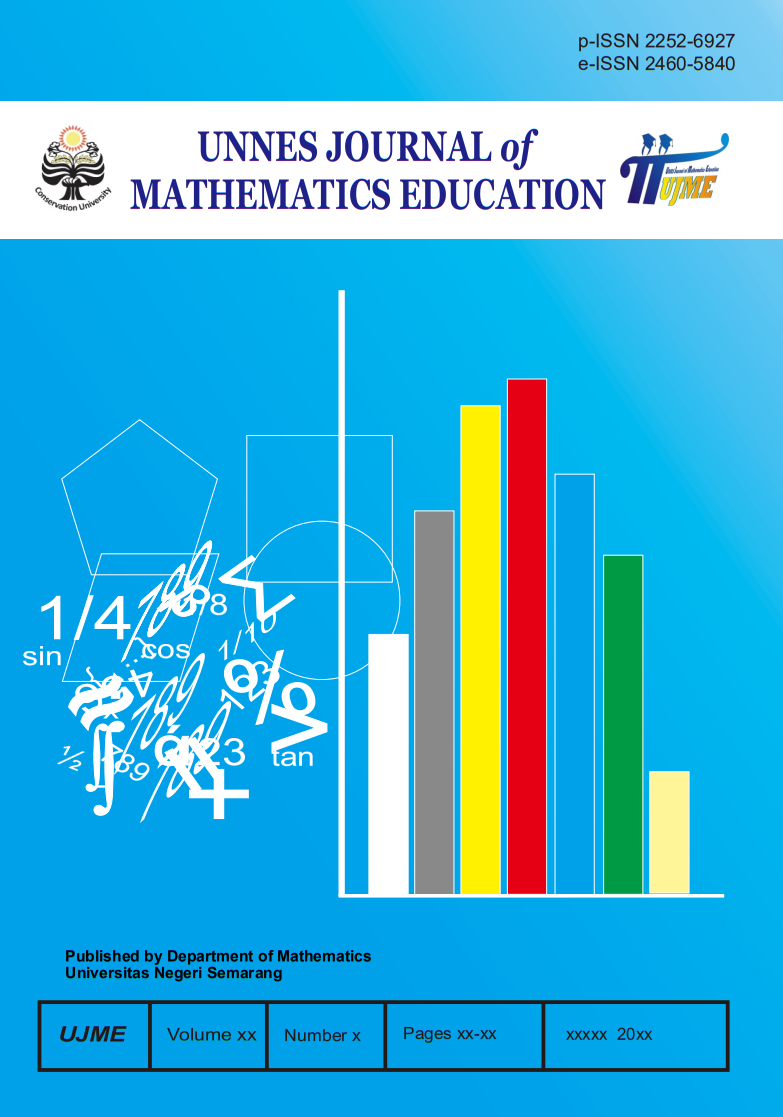Students’ Mathematical Problem Solving Ability Reviewed from Learning Motivation through Problem Based Learning Model Assisted by Nearpod
DOI:
https://doi.org/10.15294/ujme.v13i2.12690Keywords:
Mathematical Problem Solving Ability, Learning Motivation, Problem Based Learning Model Assisted by NearpodAbstract
This research aims to determine whether students' mathematical problem solving abilities through Problem Based Learning model assisted by Nearpod achieve classical learning completeness and are better than students' mathematical problem solving abilities through Problem Based Learning model, determine the effect of learning motivation on the students' mathematical problem solving abilities through Problem Based Learning model assisted by Nearpod, and describe the students' mathematical problem solving abilities reviewed from learning motivation through Problem Based Learning model assisted by Nearpod. The research method used was mixed methods with sequential explanatory design. The population of this research was students of class XI SMA Negeri 3 Demak in the academic year 2022/2023. The research subjects were taken from the experimental group, two students each from the high, moderate, and low learning motivation categories. The research results showed that the students' mathematical problem solving abilities through Problem Based Learning model assisted by Nearpod achieved classical learning completeness, students' mathematical problem solving abilities through Problem Based Learning model assisted by Nearpod better than the students' mathematical problem solving abilities through Problem Based Learning model, and there is the effect of learning motivation on students' mathematical problem solving abilities through Problem Based Learning model assisted by Nearpod. Description of the mathematical problem solving abilities of subjects with high learning motivation tend to meet all indicators of mathematical problem solving abilities, subjects with moderate learning motivation tend to meet three indicators of mathematical problem solving abilities, and subjects with low learning motivation tend to meet two indicators of mathematical problem solving abilities.

